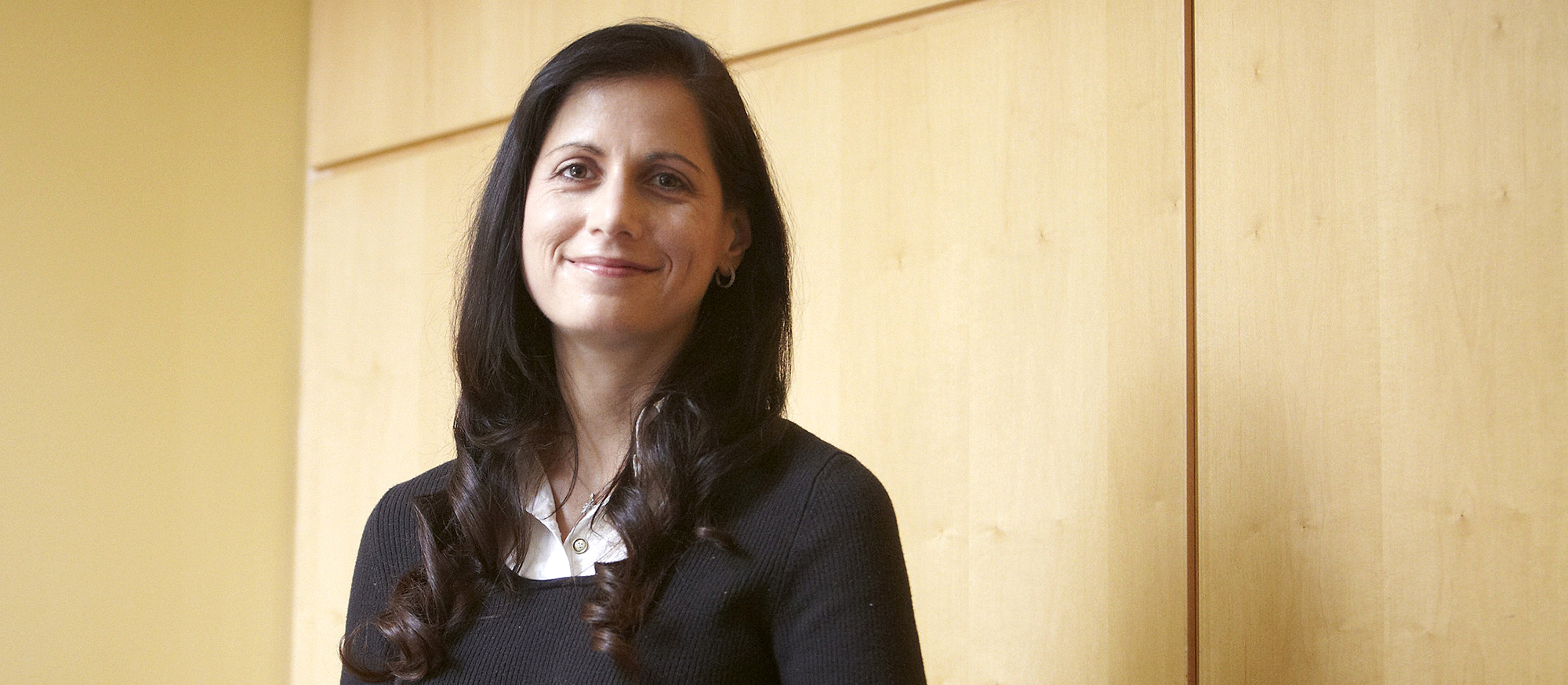
Formerly at the Harvard T. H. Chan School of Public Health, Baicker joined Harris on August 15, 2017. (UChicago News Office)
It may seem like these are challenging times for leaders, scholars, and analysts devoted to evidence-based policy, but never has their work been more important.
As a leading policy school, Harris has the opportunity—and the responsibility—to leverage the cutting-edge work of our faculty, to inspire the next generation of policy leaders, and to connect with policy makers in Chicago, DC, and across the globe. Harris has remarkable momentum in rising to this challenge.
This year we were joined by seven new faculty members who add eminence and breadth to our exceptional community of scholars. Our faculty are deploying a wide range of tools, including analytical politics, economics, statistics, machine learning, and psychology, to tackle the world’s most complicated problems across crucial areas of domestic and foreign policy.
We also welcomed the largest and most diverse class in Harris’s history this fall, and we are on track to surpass last year’s record-breaking enrollment growth as applications to our early action admissions round have more than doubled. New partnerships and programs, such as the University’s Civic Leadership Academy, a dual-degree program in health policy with the London School of Economics, and our Evening Master’s Program for working professionals, are allowing us to expand our reach and accessibility.
Our growing student body is energized and vibrant, reflecting an increasing appreciation of the value of an analytical approach to policy making. Our students realize that heated rhetoric and magical thinking are unlikely to solve thorny policy problems; they come to Harris to confront the complexity. Their rigorous analytical course work is complemented by the many new opportunities they have to put these new tools into practice, such as research assistantships, Harris Policy Labs, and our new Leadership Credential. Making a difference in the community starts on day one.
At Harris we are building on this momentum to be a catalyst for policy innovation. It is crucial for any policy school to be actively engaged in the policy-making process through the contributions of its faculty, students, and alumni. It is particularly important for a school like Harris that emphasizes the kind of evidence-based decision making the world sorely needs. Every sector of the economy is profoundly impacted by public policy. From my own work in health policy, I have seen the impact that evidence can have. The debate over Medicaid is a prime example: Medicaid coverage confers enormous benefits to enrollees but at substantial costs to taxpayers. This is a difficult trade-off—one that policy makers cannot evaluate without analytical tools to frame the comparison and evidence on the size of the costs and benefits. These are the tools that Harris has long excelled in providing.
Our engagement extends beyond the translation of the faculty’s scholarship and the reach of our growing alumni community, with faculty and students alike partnering with policy makers—in the private and public spheres—to tackle difficult problems, including climate change, political instability, health disparities, and global conflicts.
The opening of the Keller Center as our new home in the 2018–19 academic year is more than an investment in our school’s future—it is a beacon for policy impact. It expands our capacity to serve our students, our campus partners, and our community as we work together to address the pressing policy challenges facing Chicago and the world.
Making policy on the basis of rigorous, thoughtful analysis will always be a complicated endeavor. Ensuring that we are educating the next generation of policy makers to approach complex challenges in a clear-eyed, analytical, grounded way—the Harris Public Policy way—is vital to the future. The effects of that approach will have lasting implications for public policy outcomes and millions of people around the world.
